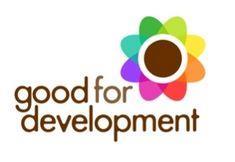
Major retailers and suppliers are considering a new international sustainability mark which could encompass existing certifications and swing the emphasis on accreditation up the supply chain.
The Overseas Development Institute (ODI) is in talks with businesses across the retail industry to discuss its proposed Good for Development mark, which could appear as either a product label or a business certification mark.
Under the draft report, which is based on the UN’s Millennium Development Goals, certification is based on a points framework, with poverty, health, equality, sustainability and education among the factors which would allow a business to accrue points.
The report, developed by the ODI, cites examples such as the success of Fairtrade products and the Carbon Trust, but proposes a scheme set to recognise the good work done by retailers on such issues.
The report’s co-author, Karen Ellis, programme leader for the ODI’s business and development programme, told FPJ: “Too often, standards and certification marks are based on minimum possible requirements, but we want to focus on the positives.
“The debate is often about retailers exploiting producers and creating difficulties for their suppliers, but the reality is that supermarkets are trying to be sustainable and should be recognised for doing so.
“Under current schemes, the emphasis is often on the supply chain meeting supermarket certification standards, but this would be about pushing the costs of those certifications up the supply chain and the retailer ensuring that it is sustainable. We are still very much in the early stages though, and taking on as many opinions as possible to see what form this should take.
“Some of the feedback we have had, especially from the food industry, is that there are already too many labels, which is why we have moved more towards a mark which could be either business or consumer facing. It is not aimed at superseding existing certifications, but we would be open to incorporating them into this.”
Simon Derrick, communications manager at exporter Blue Skies, attended a round table discussion on the matter last week and believes the idea could be extremely positive.
He told FPJ: “If it can help to raise awareness and do more on what we already do in terms of sustainability, that would be very positive. The key is with the management from the ODI, to make sure it involves as little extra burden to businesses and is as flexible as possible for different regions.
“So many of the standards we have in place already are defensive and to cover the backs of retailers. It would be good to have a positive one to reflect the good work on sustainability that is being done.”
Nigel Jenney, chief executive of the Fresh Produce Consortium, said: “Any initiative that recognises the positive impact of businesses to help communities develop and which seeks to measure this through a simple, effective process without unnecessary bureaucracy is worth exploring. We welcome the ODI’s consultation with the industry on how to take forward the Good for Development initiative and will be asking our members for their views.”
The report stresses that this should not be seen as part of a corporate social responsibility expenditure budget, but should be envisioned as an initiative to use in marketing to increase sales and income.



